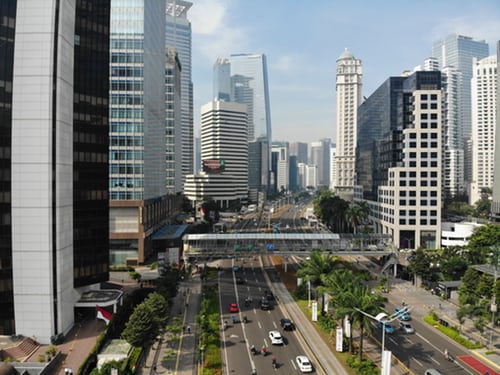
The definition of strategic policy will vary, especially in the context of government policy. According to Rod Lyon (2015), strategy is a set of actions with a specific purpose and scope decided by decision-makers/leaders to obtain long-term benefits. The metaphor of strategic policy is solving puzzle games from at least 3 perspectives: first, how to understand the environment; determine the position and role in global and regional competitions, and acknowledge the set of constraints that bind these roles and positions.
What about the competitiveness of the national industry? The Ministry of Industry as one of the main actors in making industrial policies sees the importance of industrial competitiveness as the main motor of the economy. Increasing the competitiveness of the manufacturing industry must be supported by industrial human resources and technological infrastructure. So that in order to boost the competitiveness of Indonesian industry and benefit from changes in the global system in this modern industrial era, the Minister of Industry initiated the strategic policy Making Indonesia 4.0 as a leadership breakthrough in an effort to strengthen industrial competitiveness.
The phenomenon of Industry 4.0 (4IR) is already in front of national industry players. There will be a fundamental change in the structure of the national industry and currently, 4IR has become a national agenda in order to increase the nation's competitiveness. Indonesia is one of the strongest market economies in the world with a population of close to 270 million. All global economic forces are focused on Indonesia as an abundant market as well as a source of competitive productive labor. With the contribution of labor absorption of up to 14 million and strong national consumer spending in the future, Indonesia will become one of the world's economic powers that change from natural resource-based to value-added sector-based.
The era of economic globalization has brought a very rapid renewal and has a broad impact on the economy, both nationally and internationally. The impact that is being felt the most at this time is the increasingly fierce competition in the industrial world. For this reason, the industrial sector must be able to develop in the competitive arena and at the same time make it a driving force for the national economy in the future. To build sustainable competitiveness, efforts are needed to utilize all the potential resources and capabilities possessed to take advantage of outside and within the country's opportunities.
Returning to the concept of strategic policy, namely the perspective of how to understand the environment in this global competition, the Ministry of Industry sees that industrial revolution 4.0 has the potential to overhaul the industry as well as the social order. For Indonesia, this is an opportunity to increase global market competitiveness, and the implementation of Industry 4.0 adds to Indonesia's optimism toward a solid industrial country by 2025.
For the national industry, the industrial 4.0 phenomenon adds to the list of opportunities to revitalize the manufacturing industry sector and become one of the strategies to accelerate Indonesia's vision to become the 10th largest economy in the world. In 2016, the manufacturing industry contributed 20 percent of GDP and more than 14 million jobs were absorbed. Currently, Indonesia is also enjoying a period of demographic bonus, thanks to the large population of young people who are in the productive range which is expected to increase by 30 million by 2030. So it is important for the government to provide job opportunities.


